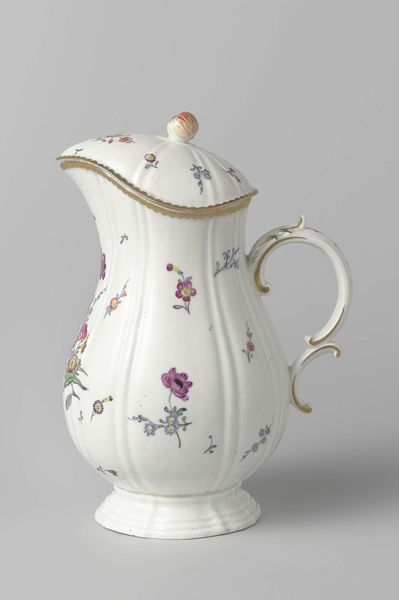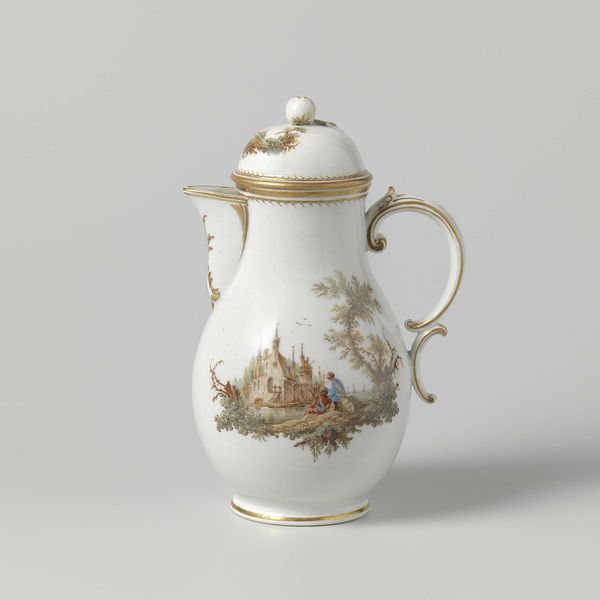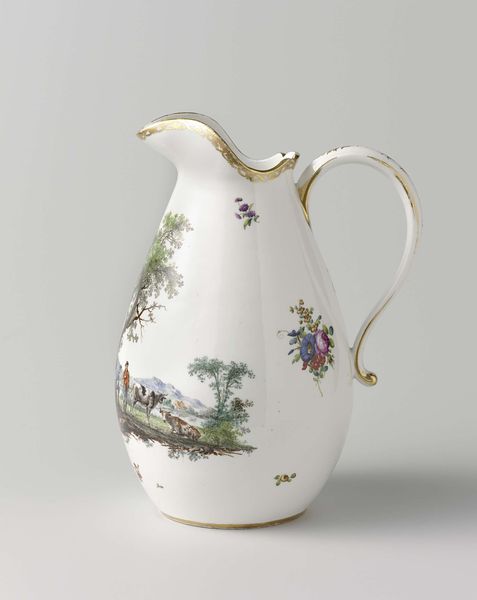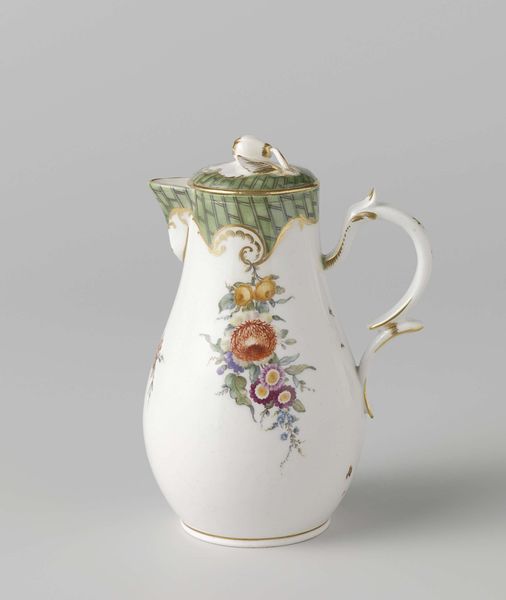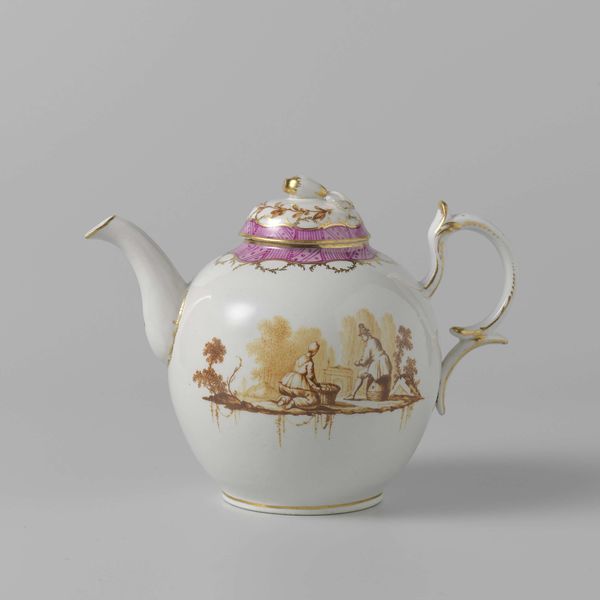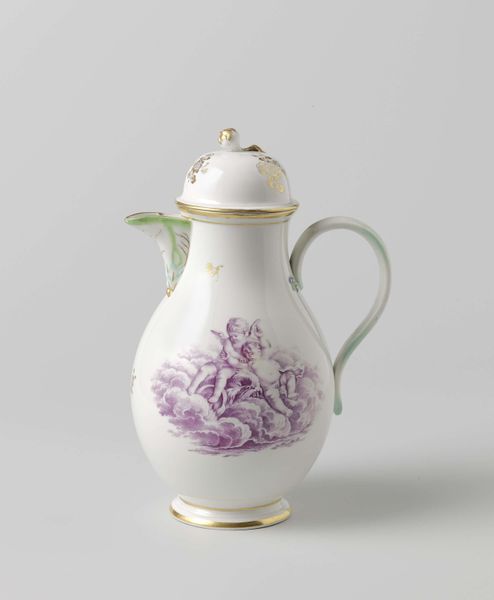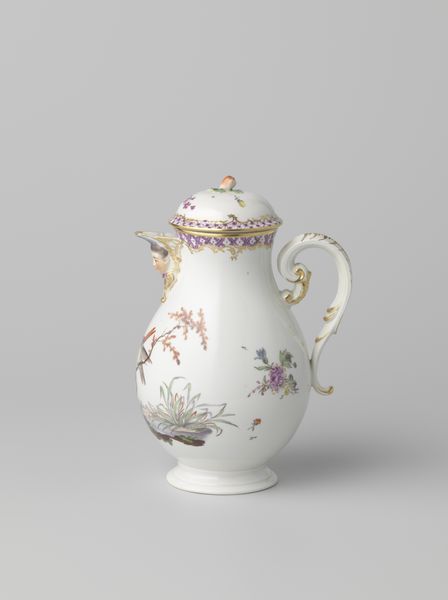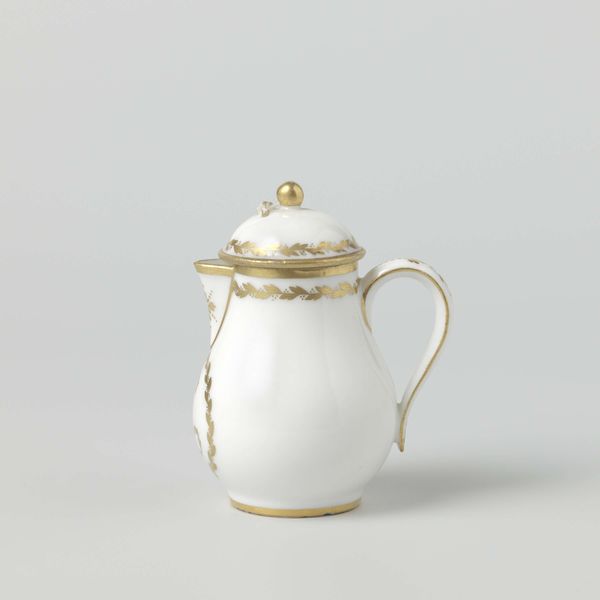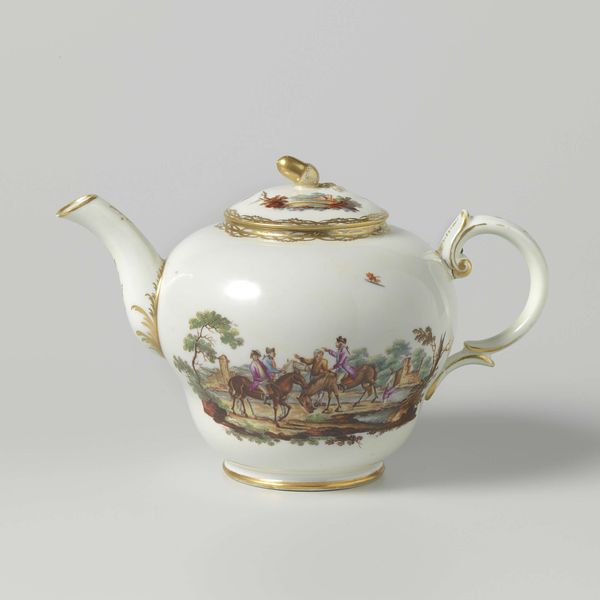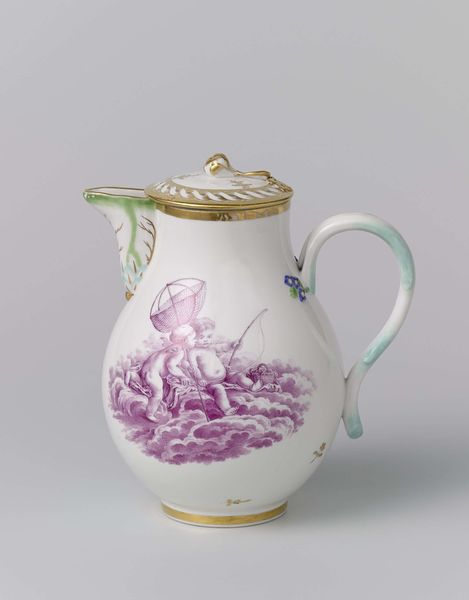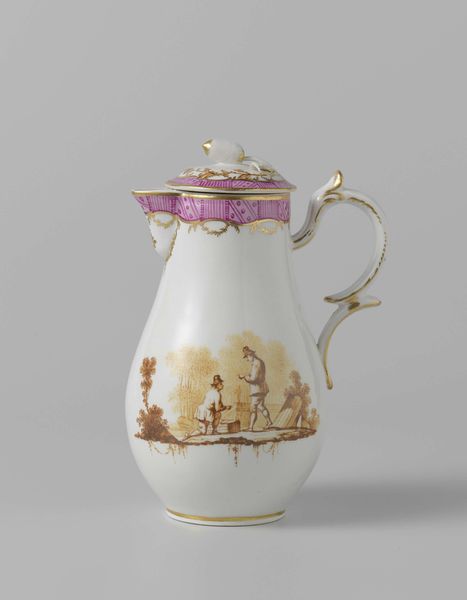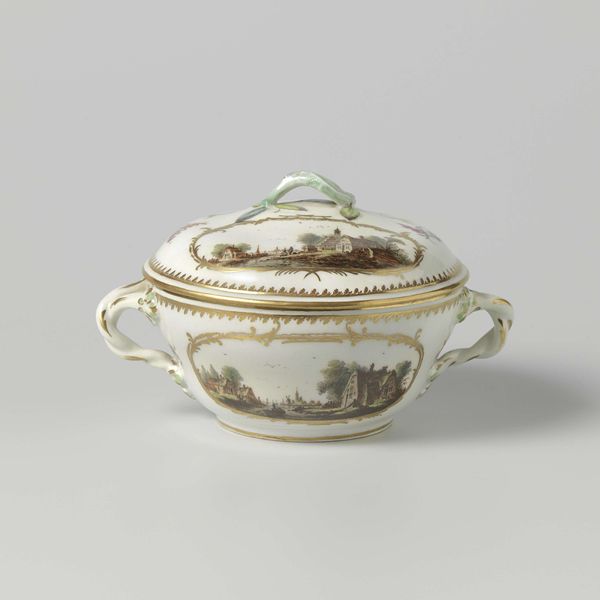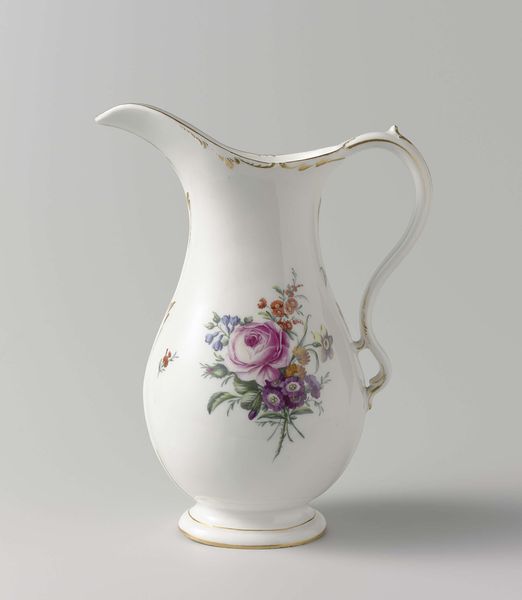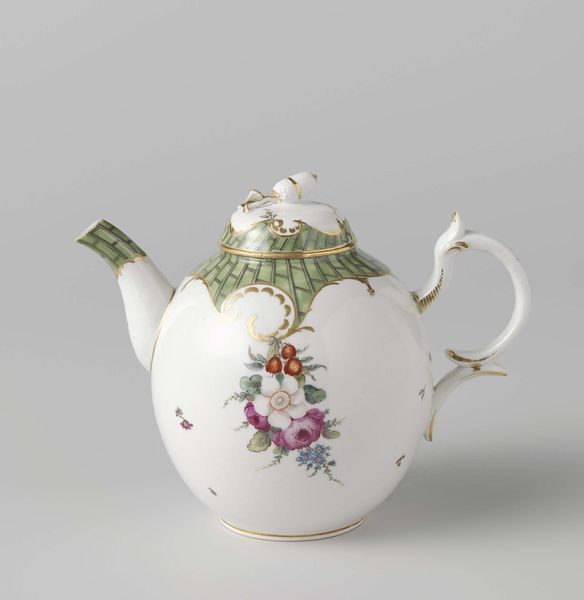
Dimensions: height 13.0 cm, width 11.5 cm
Copyright: Rijks Museum: Open Domain
This is a tea service created in Loosdrecht, in the Netherlands, during the 18th century. At that time, tea was becoming ever more fashionable, and the manufacture of porcelain was taking off all over Europe. But how do we know about the origins of the objects we see in museums? Here, the presence of a maker's mark would tell the scholar much of what they need to know, while stylistic features place it within a certain time. The scenes painted on the porcelain itself place an emphasis on naturalism, with the depiction of ducks and simple flora. While these pastoral scenes seem innocuous, we need to remember that this was a period of colonial expansion, and the wealth that enabled the commissioning of such artworks came at a great cost to those whose labour and resources were exploited. In this way, even seemingly harmless imagery might be read critically, as scholars investigate the conditions under which the object was made, and by whom it was consumed.
